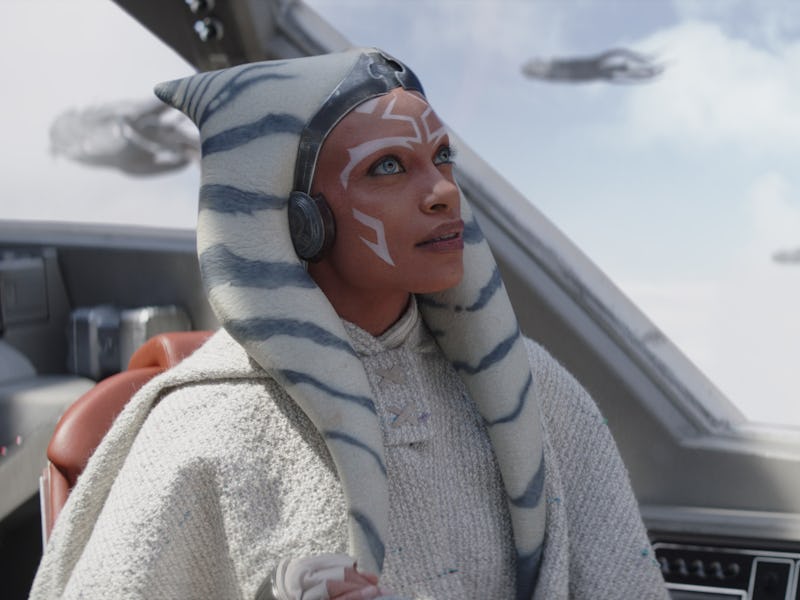Ahsoka Season 2 Pushes Back Against A Pervasive Sci-Fi Trend
It’s time to turn down the Volume.

From the miniatures used in the original trilogy to the controversial CGI portrayal of Grand Moff Tarkin in Rogue One, Star Wars has always been on the cutting edge of special effects technology. That didn’t change with its move to television, as The Mandalorian and the rest of the related “Mando-verse” shows used a modern technology that’s becoming a Hollywood staple.
But Ahsoka Season 2 is breaking that pattern, instead choosing to blend multiple techniques in a way that will hopefully address one of the series’ biggest criticisms — and push back on a troubling pattern of putting convenience before quality.
Industrial Light & Magic’s StageCraft technology, better known as The Volume, can portray moving backgrounds, but they don’t always look immersive.
The Mandalorian Season 1 championed use of The Volume, a 360-degree LED screen capable of projecting backgrounds onto sets, as an alternative to greenscreens that later need replacing. From there, it became a go-to for Star Wars and other genre creations, like Percy Jackson and the Olympians, Thor: Love and Thunder, House of the Dragon, and Doctor Who.
But use of this cutting-edge technology became over-use, and a backlash emerged. As immersive as the Volume’s backgrounds can be, they’re still screens that can appear flat. Some shows work well within these restrictions; Doctor Who only used the Volume to show far-off mountains, while House of the Dragon used it to create dusk lighting for hours on end while shooting a key scene. Ahsoka Season 1, however, seemingly used it nonstop, creating an overarching feeling of overcast and gray skies that sapped any vibrancy from its shots.
According to IndieWire, Ahsoka Season 2 will be shot entirely in the United Kingdom, like previous Star Wars series Andor and The Acolyte, and will use multiple filming techniques, unlike Season 1.
Ahsoka Season 1 looked like it all took place on a gray, overcast planet. Could that change with Season 2?
This feels like a worthwhile change; Andor is pretty much universally acclaimed as the best Disney+ Star Wars series, and part of that is how “real” it felt. Rather than using the Volume, scenes were shot on location and employed lighting in interesting ways. The Volume is a great tool when the circumstances are right, but it can’t replace the feeling of filming on location.
Ahsoka now has the chance to become the perfect case study by showing two versions of the same show. Season 1 relied on the Volume, while Season 2 will dial things back. If all goes well, this could be a turning point for Star Wars television; or at least the start of recognizing that while a new technology may be innovative, it doesn’t have to take over completely.